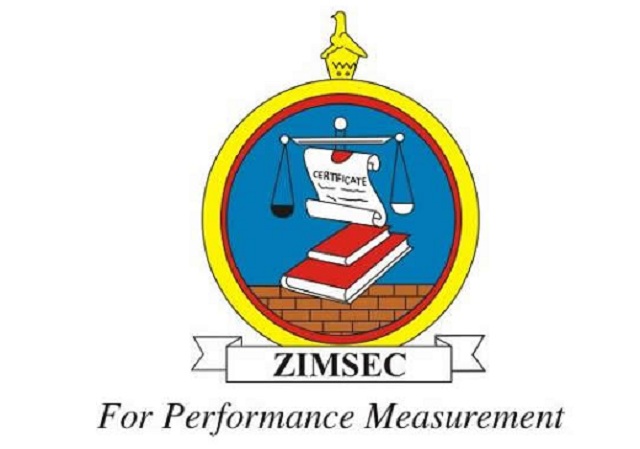More about Zimsec

The Zimbabwe School Examinations Council, hereinafter referred to as ZIMSEC, is an autonomous parastatal under the Ministry of Primary and Secondary Education. It is an internationally accredited examinations board. Its syllabuses were evaluated by the National Academic Recognition and Information Centre (NARIC) in the UK, and found to be equivalent to the General Certificate of Education Standard offered in the United Kingdom, Australia, New Zealand, United States of America and the other English speaking countries, hence the internationally recognised qualifications conferred by the Council.
The Ministry of Primary and Secondary Education, through the Curriculum Development Unit (CDU) has been engaged in a curriculum review process from 2014 to date, with a series of new syllabi and subjects being discussed for implementation. All of this is in line with the national vision of Zim-Asset that is looking ‘towards an Empowered Society and a Growing Economy’. As ZIMSEC we play a vital role in the foundations through quality continuous assessment of the nation’s students produced by the Education system. This is a key factor in integrating educational assessment into national development planning and demonstrates the government’s recognition of the importance of quality continuous assessment to national sustainable development.
ZIMSEC is a dynamic, results driven organisation which has drawn its strength from focusing on moving into the use of cutting edge technology available to the assessment business. From e- registration to e- marking and now looking towards electronic item banking and electronic tracking and sealing of examinations papers, ZIMSEC is looking towards being an ‘E’ driven organisation, to improve efficiency, accuracy and security in its operations. In the Southern African region ZIMSEC has set the pace in the quality of assessment systems and the evolution of traditional examining and assessment, by being the first to embark in e- marking and becoming a case study for neighbouring examinations boards.
ZIMSEC as an association is the Chairperson (2015) of the Southern Africa Association for Educational Assessment (SAAEA), a member of Association of Educational Assessment in Africa (AEAA) and the International Association for Educational Assessment (IAEA). It is on these platforms where ideas on educational assessment techniques are discussed and shared, that ZIMSEC aligns its strategies and vison aimed at improving quality in education linking with the regional and international initiatives and trends in educational assessment. This year Zimsec is the host of the 34th AEAA Conference, at the Elephant Hills in Victoria Falls, on July 25 and 29, 2016. The theme of the conference is ‘Promoting holistic Development through Innovative Educational Assessment Initiatives.’
ZIMSEC has a strong organisational framework including 10 Regional Offices covering the nation, and the Head Office in the Capital city which hosts the heads of divisions where issues of human resources, technical expertise and funding are handled.
It can be concluded that there is great recognition of the importance electronic solutions and systems to achieving ZIMSEC’s short and long term goals of security and efficiency in examinations administration, assessment and research; however the traditional constraints which have been documented frequently and are mentioned in this report – inadequate resources, low political will, weak governance to name a few – must be overcome in order for sustained progress to be made. The report provides a snapshot of current efforts and achievements in ZIMSEC.
Grade Seven Examinations National Candidature
The Grade 7 Examinations are those written by children ending their Primary education moving on to Secondary school Education. As shown on the chart above, we have seen a notable increase in the candidates who sit for these examinations. Up until end of the year 2014, these examinations were offered to all students free of charge, with the Ministry of Primary and Secondary Education, through the National Treasury, paying a grant to ZIMSEC to help fund administration of these examinations. Due to the national economic environment which saw the government body fail to fulfil this obligation, we have now introduced a staggered payment system where pupils start to pay towards the final Grade seven examinations from grade six until the end of grade seven. This is a subsidised fee, very nominal, but will help to cover at least running costs of the examinations.
Ordinary Level Examinations are sat by most students as they set a precedence for further education and employment options. The main examinations session is the November session as can be seen from the large candidature. Data for 2015 is not included for this session in this document due to ongoing entries. It is notable again that there is a sturdy increase in candidature over the years.
June examinations are mainly written by those candidates who are supplementing subjects, hence the low entries. This year 2015 was especially affected due to a delay in the announcement of examinations fees which left a very short time for the candidates to register for the examinations session.
The Advanced levels have a lower candidature compared to the Ordinary Level examinations. The two major reasons are
i. Failure by parents to raise school fees for the children to continue education after the Ordinary level. Under the national economic environment many of our ‘customers’ are living under the poverty datum line and so struggle to pay the requisite school and examination fees, hence the high dropout rate.
ii. Failure by the candidates to pass the Ordinary level examinations with the necessary subject passes required to go further into Advanced level.










Comments